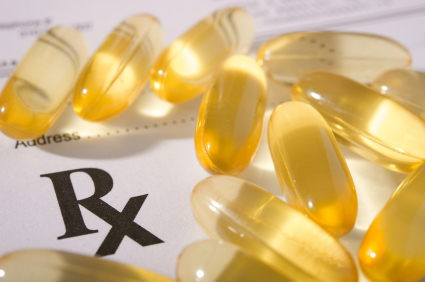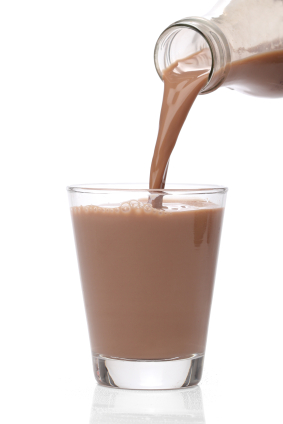October is Sports Nutrition Month at MomsTEAM. We invited some old friends and some new ones to share their wisdom about nutrition and offer always on-the-go sports parents fresh ideas and choices for healthy, easy-to-make breakfasts, lunches, dinners and between-meal snacks for your active children.

Today we hear from the Director of Sports Nutrition at the University of Nebraska, Lindsey Remmers:
MomsTEAM: What do recommend sports-active kids eat for breakfast?
Remmers: The best habit a young athlete can build is starting the day off with a solid breakfast every morning. The challenge is getting out of bed early enough! I always recommend a combination of foods that include whole-grains and fruit, dairy and/or lean protein. The combination will keep them fuller for longer, providing energy not only for the day, but for during school as well. Mix and match any of the following:
Whole-Grains & Fruit:
- Instant oatmeal packets
- 100% whole-grain toast with peanut butter and banana or raisins
- Banana roll-ups (whole-wheat tortilla, banana, peanut butter, honey)
- breakfast burritos on whole-grain tortillas
- Whole-grain frozen waffles or pancakes
- 100% whole-wheat English muffins
- Whole-grain cereals with less than 10g sugar per serving and at least 2g fiber per serving. Great cereal options (not exhaustive): Life, Kix, Quaker Whole Hearts. Cheerios, Frosted Mini Wheats, Raisin Bran, Kashi, Whole-grain Cream of Wheat, Oatmeal, Quaker Oatmeal Squares, Wheaties, Kellogg's Smart Start, Honey Bunches of Oats, Corn Chex
- All fruits
- Granola
- Milk
- Chobani Champions yogurts or other Greek yogurts
- Eggs (try making them in the microwave!)
- String cheese
MomsTEAM: Do you think youth and high school athletes need supplements? If yes, which ones?
Remmers: If athletes are meeting their energy needs through whole-foods, additional supplements are not needed. The only supplement I may recommend to young athletes is a standard multivitamin containing 1000IU vitamin D, and possibly omega-3's. However, the multivitamin only serves as nutritional "insurance" and complement but cannnot make up for a lack of a solid nutrition foundation of a well-balanced diet of fruits, vegetables, whole-grains, healthy fats, and dairy foods.

The supplement industry is a scary one, as it's currently not regulated by the FDA. Many can make health claims without any scientific evidence: as a recent report from the FDA pointed out, 20 percent included prohibited disease claims on their labels which were unsubstantiated, and others may not actually contain the ingredients (or contain more ingredients) than listed on the supplement facts panel.
The other frightening fact is that the supplement industry is among the fastest growing industries in the country. According to the Supplement Business Report, the dietary supplements industry surpassed $30 billion in 2011 sales, growing 7% annually in a return to performance levels not seen since before the economic downturn. Adulterated supplements are common, and you won't know for sure if a supplement is true to the label unless it has been third-party tested by a reputable company (e.g. NSF Certified for Sport). The bottom line is a fully-nourished body is a strong and powerful body! Food first, always.
MomsTEAM: What is the best snack to pack in a sports-active kid's school backpack or gym bag?
Remmers: Athletes need fuel throughout the day, especially growing kids! Great snacks to pack include:
- Peanut butter and jelly sandwiches on whole wheat bread or bagels
- Nuts & dried fruit
- Triscuits
- Ziploc baggies of whole-grain cereal, whole-grain goldfish
- 100% juice boxes
- Buddy Fruit tubes or applesauce cups
- Whole fruit
- Pretzels

- Peanut butter cups, and energy bars such as
- Clif bars
- Lärabar
- Kashi
- Nutrigrain
- Nature Valley trail mix bars
- Crunchy bars with a peanut butter cup, or
- Quaker soft baked bars.
A carton of skim milk would be a bonus to add with the snack if there is a milk vending machine at school.
Great convenient choices for recovery after hard practices that last longer than 90 minutes:
- Horizon organic chocolate milk cartons
- Carnation breakfast essentials ready-to-drink bottles
- Boost original or Ensure nutrition shakes.
Try to consume a recovery drink, snack, or meal within 30-45 minutes after training. We often recommend liquid options, as appetites are low right after practice.
Lindsey Remmers is Director of Sports Nutrition in the Athletics Department at the University of Nebraska. She obtained her undergraduate degree in Human Nutrition from Winthrop University, where she played Division 1 volleyball and completed her dietetic internship, before earning her Master's in Nutrition & Exercise Science from the University of Nebraska in 2008. Lindsey is a Licensed, Registered Dietitian and a Board Certified Specialist in Sports Dietetics (CSSD).
As well as working full-time for the Cornhuskers, Lindsey consults individuals of all ages and competitive levels - from high school to elite athletes, active adults, and those simply looking to improve their health. Her passion is providing athletes with the tools they need to help them outperform their competition through solid nutrition, while teaching them how to enhance their health with long-lasting lifestyle changes. She provides individual nutritional counseling that focuses on performance fueling strategies, hydration and proper supplementation, game-day fueling, team nutrition education sessions, on-site and travel meal management, body composition analysis, food allergies, grocery store tours, healthy cooking, and eating disorder prevention and counseling.
Lindsey is a member of the Academy of Nutrition & Dietetics (AND), SCAN, and the Collegiate & Professional Sports Dietitians Association (CPSDA). She also serves on the Conference Planning Committee for the CPSDA. You can follow her on twitter: @RemmersRD or Husker Sports Nutrition @HuskerNutrition.



















